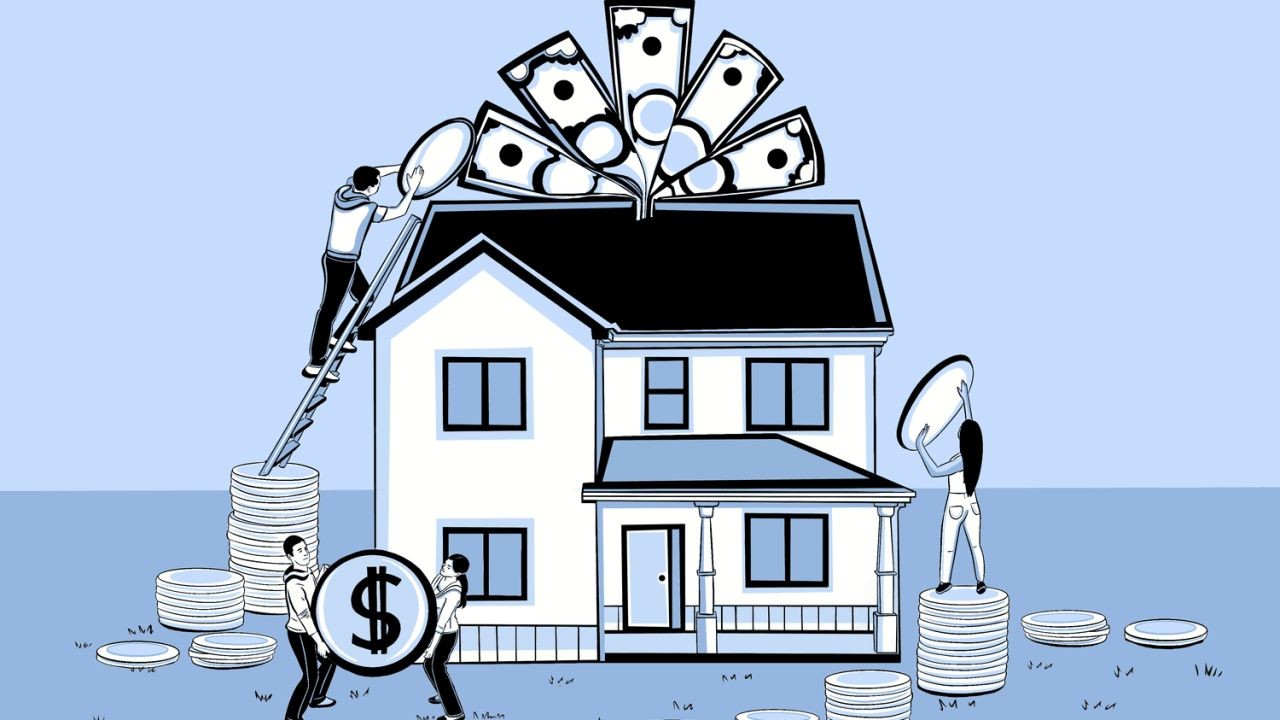Introduction
New Zealand’s housing market has been a focal point of economic discussions, with its dynamic shifts influencing not only homeowners but also investors and policymakers. While some argue that this market is a goldmine poised for continuous growth, others foresee an impending slowdown. Understanding the trajectory of the housing market is crucial for stakeholders across the board. Recent data from the Reserve Bank of New Zealand and insights from industry experts provide a nuanced understanding of what lies ahead. So, will New Zealand’s housing market continue its upward trajectory, or are we on the cusp of a deceleration?
Comparative Analysis: Growth vs. Slowdown
New Zealand's housing market is at a crossroads, with compelling arguments on both sides of the growth versus slowdown debate. Here, we delve into the factors influencing each scenario.
Growth Prospects
- Population Growth: New Zealand's population is projected to grow by over 1 million people by 2043, increasing demand for housing. This population surge is expected to sustain housing demand, especially in urban centers like Auckland and Wellington.
- Government Policies: Initiatives such as the KiwiBuild program aim to deliver affordable housing, supporting market growth.
- Investment Opportunities: With interest rates remaining relatively low, real estate remains an attractive investment avenue, drawing both domestic and international investors.
Indicators of a Potential Slowdown
- Affordability Concerns: Reports from Stats NZ indicate a significant portion of income is being spent on housing, leading to affordability issues.
- Regulatory Changes: Recent tax changes targeting property investors could dampen speculative demand, slowing growth.
- Economic Uncertainty: Global economic uncertainties, including trade tensions and health crises, can impact housing markets by influencing consumer confidence.
Real-World Case Studies
Case Study: The Impact of KiwiBuild in Auckland
Problem: Auckland, New Zealand's largest city, faced skyrocketing housing prices, making it difficult for first-time homebuyers to enter the market. The issue was exasperated by a housing supply that couldn't meet demand.
Action: The New Zealand government launched KiwiBuild, aiming to construct 100,000 affordable homes over ten years. This initiative focused on increasing supply and stabilizing prices.
Result: While initial targets were not fully met, the program successfully delivered over 3,000 homes by 2023, easing some pressure off the market. According to the Ministry of Business, Innovation and Employment, the program helped moderate price growth.
Takeaway: Government intervention, when executed effectively, can help stabilize volatile markets. Other cities in New Zealand could benefit from similar housing initiatives to manage growth sustainably.
Debunking Common Myths
Several myths circulate around New Zealand's housing market, often distorting public perception and investor decisions. Here’s a closer look at some:
Myth: "Property prices always go up."
Reality: While historical trends show long-term growth, short-term fluctuations and market corrections are possible, as seen in the mid-2000s downturn.
Myth: "Only wealthy investors benefit from property investments."
Reality: With proper research and strategic planning, small investors can also achieve significant returns, as evidenced by numerous case studies in regional areas.
Myth: "New Zealand's housing market is immune to global economic trends."
Reality: Global events, such as financial crises, have historically impacted the New Zealand housing market, influencing interest rates and investment flows.
Future Trends & Predictions
The future of New Zealand's housing market will be shaped by several emerging trends:
- Technology Integration: PropTech innovations, such as smart home technologies and online property platforms, will redefine buying and selling experiences.
- Sustainability Focus: As environmental concerns grow, sustainable building practices and eco-friendly homes will gain prominence.
- Urbanization: As more people move to cities, urbanization will lead to more high-density housing developments, particularly in major cities.
According to a report by the New Zealand Productivity Commission, urban housing demand will continue to rise, necessitating strategic planning and investment in infrastructure.
Conclusion
The New Zealand housing market presents a complex tapestry of growth potential and challenges. While population growth and government policies provide a robust foundation for future growth, economic uncertainties and affordability issues pose significant risks. For investors, staying informed and adaptable is crucial. As the market evolves, leveraging technology and sustainable practices will be key in navigating the changing landscape.
Ready to make informed decisions in New Zealand's housing market? Stay updated with our newsletter for the latest insights and strategies!
People Also Ask
- How does the housing market impact businesses in New Zealand? The housing market influences consumer spending, as high housing costs can reduce disposable income, impacting retail and service sectors.
- What are the biggest misconceptions about New Zealand's housing market? The myth that property prices always rise is prevalent, but market corrections do occur, influenced by economic factors.
- What strategies should investors consider in the current market? Investors should focus on diversified portfolios, leveraging both urban and regional properties, and staying informed about policy changes.
- What upcoming changes could affect New Zealand's housing market? Policy shifts, such as tax changes for investors, could alter market dynamics, necessitating strategic adjustments for stakeholders.
Related Search Queries
- New Zealand housing market forecast 2025
- Impact of KiwiBuild on property prices
- Real estate investment strategies NZ
- New Zealand property market trends
- Future of housing in New Zealand
































Platinum Pet Doors
9 months ago